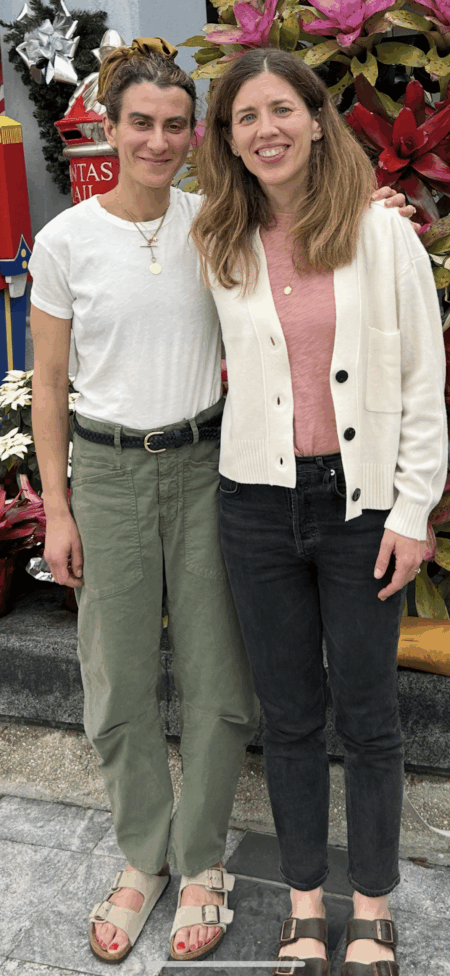When Support Shows Up: My Cancer Journey with Marian and Sharsheret

I was diagnosed with breast cancer at 45, at the end of 2022. Like many of us, I learned I had cancer via MyChart—without a care team and was overwhelmed with uncertainty about the road ahead. I’d never heard of Sharsheret, but my mom told me that friends and family had found the organization incredibly helpful. I reached out and heard back within a day—with compassion and a menu of resources. Sharsheret offered comfort and reassurance at exactly the right time, and I will always be grateful.
Marian, my wife, has accompanied me to nearly every appointment. There aren’t a lot of upsides to the cancer experience, but being in a same-sex relationship has some advantages. I’ve never had to make a call to a doctor, insurer, or pharmacist. Marian impersonates me on the phone, and it has spared me so much of the administrative overhead of cancer treatment. To anyone who has gone through this, you know that’s no small thing.
I know many women experience grief around the loss of traditional femininity during and after cancer treatment. A unique challenge, as a lesbian, might be the mirror to your losses. I’ve lost most of my hair twice now. Watching Marian blow-dry her thick, long hair is hard. She can effortlessly throw her hair into a ponytail, while I’m worried about hair serums, gentle brushing, hair-wash days, and whether my hat will blow off. I feel so much older than she is now—though we’re exactly the same age—with my night sweats, leg cramps, and fatigue. When I open the cupboard and see her tampons, I mourn my losses a little bit more.
At the same time, I know she’s uniquely positioned to understand the magnitude of what’s been lost. Cancer can be lonely, but Marian understands as best as anyone can—as a woman, as the daughter of a two-time breast cancer survivor, and as the most empathetic person I’ve ever met. She deserves her own newsletter spotlight, honestly. I am so lucky that she is mine on this journey.
I’m grateful to Sharsheret for all of their services, but especially for their sensitivity to the LGBTQ+ experience and genuine interest in learning more—so they can reach, educate, and help more people. I’d encourage anyone going through cancer, as a patient or caregiver, to reach out for support.
